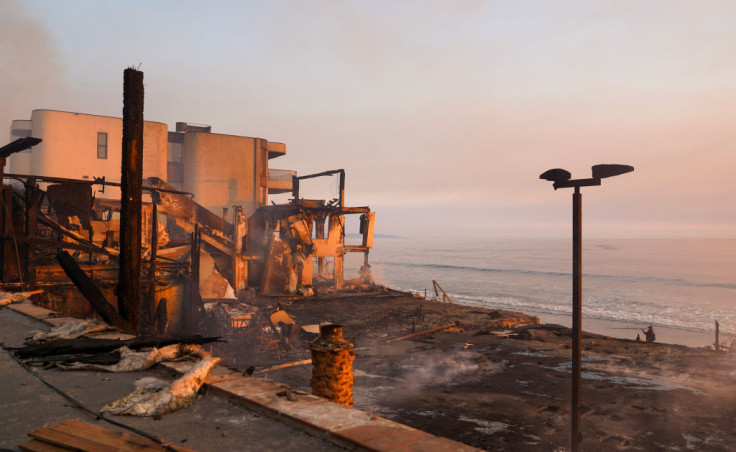
Insured losses from the wildfires scorching Southern California could hit $20 billion and possibly higher, making it the most expensive disaster in the state's history, according to reports on Friday.
J.P. Morgan doubled its forecast of insured losses to more than $20 billion if the fires continue unabated.
Wells Fargo estimated that the combination of insured losses and economic damage could rise above $60 billion, Reuters reported.
Other estimates put the total damage, including uninsured losses, as high as $150 billion.
The fires, which erupted in the Los Angeles area on Tuesday, were quickly spread along the Pacific Coast by hurricane-force winds that picked up and carried white-hot embers that sparked blazes miles away.
Firefighters continued to struggle Friday to contain the infernos that have blazed through the Pacific Palisades and Malibu, among the most expensive neighborhoods in the United States and home to movie stars and their multi-million dollar mansions.
An analysis by Reuters before the fires found insurance costs there were among the most affordable in the country, but that is expected to change drastically because of the sheer destruction caused by the infernos and regulatory changes enacted by the state last year.
"While leading U.S. property insurers are in good financial condition, the California property insurance market has been challenging ... leading many insurers to re-think their product offering, including an outright exit from the market," Morningstar DBRS wrote in a client note, Reuters reported.
At least 10 people have been killed and roughly 10,000 homes and structures have been damaged or destroyed, the Los Angeles Times reported. Tens of thousands of acres have been charred.
Companies that specialize in luxury properties - Allstate, Travelers and Chubb - are the most exposed insurers in California, InsuranceBusinessMag.com reported.
And reinsurers like RenaissanceRe and Arch Capital also face significant risk, the report said.
Compounding the crisis in the state's insurance market is that major insurers Allstate and State Farm stopped issuing new home insurance policies because of regulatory constraints on premium increases, InsuranceBusinessMag.com reported.
For instance, State Farm dropped coverage to 72,000 properties in the Pacific Palisades an area engulfed by flames that are still only 6% contained.
Some homeowners have turned to the FAIR Plan, California's insurer of last resort.
But the California-backed FAIR Plan is already responsible for about $6 billion in damage in the Pacific Palisades, and it caps coverage at $3 million per property, InsuranceBusinessMag.com.







